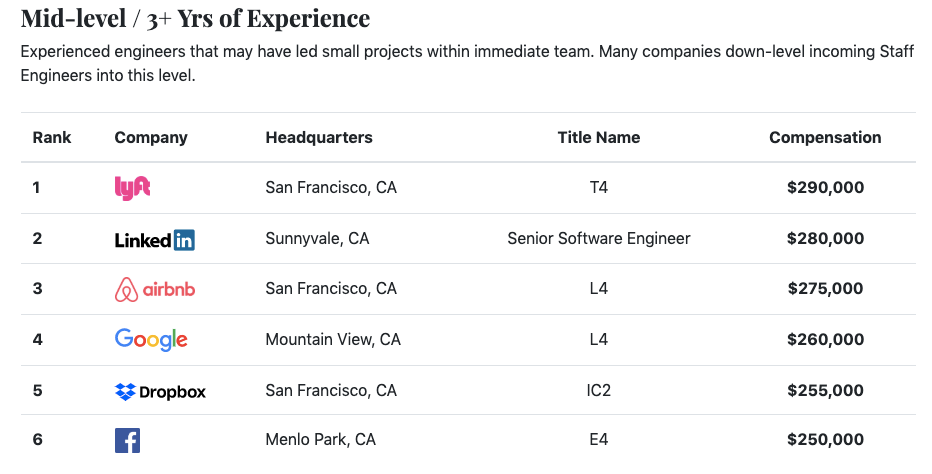Engineering salaries
One reason insurance struggles to hire top technical talent
“Everyone wants to hire the best. Very few pay as if they employ the best” - Naval Ravikant, founder of AngelList
Let’s look at the compensation data from the top-paying tech companies:



Now, let’s look at the engineering compensation data for 3 of the largest US insurers:
Progressive:


USAA:


GEICO:



Lastly, let’s look at Guidewire, the $8B behemoth that provides specialty software to most major P&C insurers:



Guidewire’s numbers are better than the other three but overall, you will notice that engineering salaries are more than half their level at top technology companies. This difference persists even after you account for the ‘Silicon Valley’ premium. In any case, many of the jobs with the insurance peer group are actually for cities like New York, Boston and San Mateo which are also quite expensive to live in.
Most engineers value compensation, quality of engineering stack and flexible work-rules as the ‘top 3 things’ they look for in an employer. Most insurers generally rank poorly on the other two metrics as well. Thus, it is hardly surprising that traditional insurers rank lowly as a destination of choice for technical talent.
As risk-selection moves increasingly towards ML-based modeling, traditional expense ratio optimization approaches will make less and less sense. Here’s a slide from the State of AI 2019 report:

This isn’t a trend that will play out over the next two decades. A potential scenario that might play around is that a technology company (e.g. Uber) with the technical talent and supporting architecture does the risk-selection part so well that it realizes the multi-billion dollar potential of outsourcing this. It then makes this commercially available as a risk-score (ala Experian) and it then gets used by most insurers and banks.
To receive more posts like this, sign up for our newsletter!